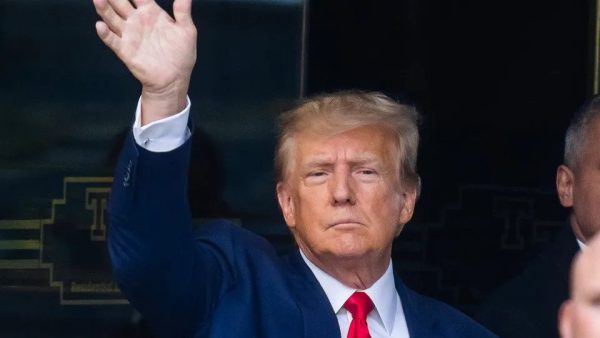Inequality deepens in the United States

In his State of the Union address on January 29th, President Barack Obama stated that “inequality has deepened; upward mobility has stalled.”
Since the Great Recession, economic inequality has been a hot topic of debate in the United States, where research shows that the top 20% of society controls most of the nation’s wealth. The inequality even fueled the Occupy Movement, a protest against inequality that started in 2011. While it originated as Occupy Wall Street, the movement inspired other protests across the world from South America to Europe.
Fast forward to 2014 and there have been changes, though not all for the better. While unemployment and the deficit are slowly decreasing, inequality in the country is in fact increasing. In the past three decades, the percentage of national income that the top 20 percent of the population earns has doubled.

According to track and cross country coach Mr. Flaherty, it is clear that, “a small percentage controls most the wealth. More people are falling into the lower middle class and lower class category.”
As inequality has increased, upward mobility in the United States has not decreased, but mostly stalled. Currently, mobility in the U.S. is the much the same as it was in 1971, more than 30 years ago. Mobility is greater in Germany, France, and Canada amongst others, where it has increased.
While inequality has deepened and upward mobility has stalled, what can be done to solve or at least alleviate the issue? Some, such as President Obama, propose a raise of taxes on the wealthiest Americans and increasing welfare spending. Mr. Flaherty believes that instead, taxes should be levied on products shipped into the country and that it should be harder for companies to leave the country.
“I don’t think it’s a problem that can be solved on its own. The government has to get involved in some way, shape, or form. We can’t force companies back, but we can make it harder for them to leave. We could also charge taxes to ship goods into the country, like a tariff,” says Flaherty.
Moral issues teacher Mr. Bell agrees, explaining, “I believe that we have to protect jobs here. Most major corporations have farmed out their labor to underdeveloped nations which have few labor rights laws, enabling them to cash in on small labor costs. Minimum wage has to increase to a point where one can live a sustainable life. Rhetoric which says jobs will be lost as a result must be weighed against bare human existence.”
While socio-economic inequality is already a deep scar on American society, it is unclear both how much deeper it can get and it if can ever be substantially diminished. Government action is certain, but the people have to also take action themselves.
Mr. Bell says, “From a moral perspective, we are in many ways responsible for each other. Without solidarity and a basic concern for the dignity of our people, the social-economic gap will widen and the social ills will mount.”

Nicholas Rackers '15 started writing for The Quill as Assistant News Editor in the fall of 2013. The Purple Quill is not the only activity the 2011 St....













